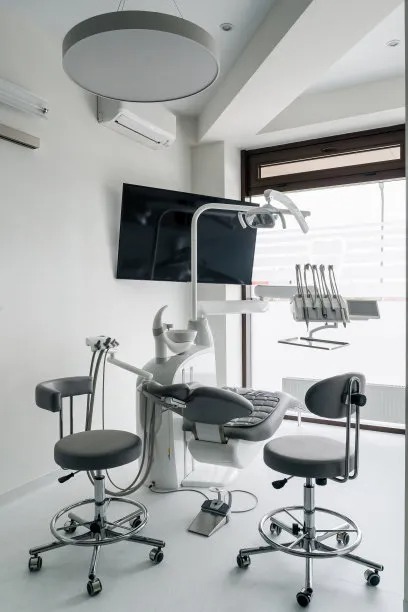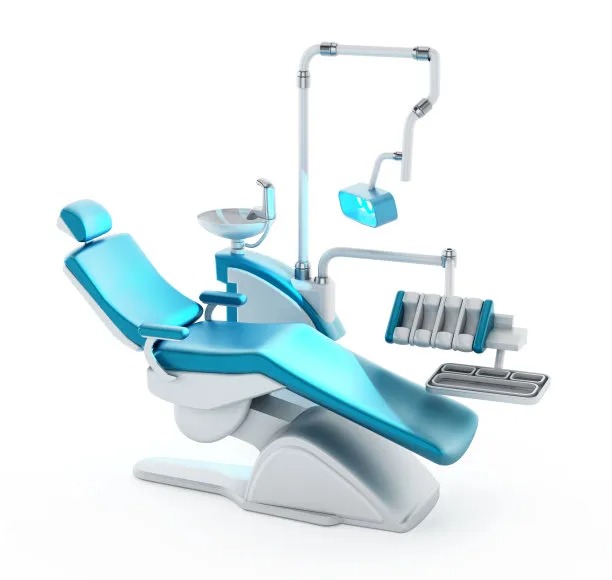Summary: Dental fillings are a common procedure for restoring damaged teeth, but to ensure optimal oral health and recovery, it is crucial to take essential precautions both before and after the treatment. This article highlights four key aspects: understanding the procedure, preparing for it, managing post-procedure care, and recognizing potential complications. Each section provides detailed explanations and actionable advice to help patients navigate their filling procedure smoothly. Proper preparation and care can help improve recovery time, reduce discomfort, and enhance the longevity of dental fillings, ensuring a brighter and healthier smile.
1. Understanding the Dental Filling Procedure

Before undergoing a dental filling, it鈥檚 important to comprehend what the procedure entails. Dental fillings are utilized to repair the damage caused by cavities or trauma to a tooth. The dentist will first clean out the decay and then fill the cavity with a material such as composite resin, dental amalgam, or gold.
Patients should ask their dentist about the specific materials used and their properties. Understanding the benefits and drawbacks of each type of filling material can help patients make informed decisions regarding their treatment options.
Moreover, knowing the steps involved in the procedure, from anesthesia to finishing touches, can reduce anxiety and help the patient feel more prepared and relaxed during the treatment.
2. Preparing for Your Dental Filling Appointment
Proper preparation for a dental filling can significantly impact the overall experience. Start by discussing any medications you鈥檙e taking with your dentist, as certain prescriptions might interfere with the procedure. Your dentist may advise you to avoid specific medications, particularly blood thinners, to minimize bleeding risks during treatment.
Additionally, consider arranging for someone to accompany you to the dental office. Depending on the anesthetic used, you might feel groggy afterward and may need assistance getting home safely. Its essential also to schedule your appointment at a convenient time, ideally when you can take it easy afterward.
Moreover, establishing good oral hygiene habits before your appointment can help prevent further dental issues. Brush and floss regularly and follow any specific pre-appointment advice provided by your dentist to ensure optimal conditions for the procedure.
3. Post-Procedure Care for Optimal Recovery
After receiving a dental filling, the care you provide to your mouth is crucial for optimal recovery. Initially, follow your dentists instructions regarding pain relief鈥攐ver-the-counter medications might be recommended if you feel discomfort after the anesthesia wears off.
Be mindful of what you eat and drink for the first 24 hours post-procedure. Soft foods are recommended to avoid stress on the newly filled tooth. Stay away from hot or cold beverages until the sensation in that area returns to normal.
Additionally, maintaining excellent dental hygiene is essential. You should continue to brush and floss lightly around the filled tooth, taking care not to disturb it too much while ensuring you remove food particles and plaque effectively.
4. Recognizing Potential Complications and Solutions
Even with the best preparation and care, some complications can arise after a dental filling. Its crucial to watch for signs such as increased pain or sensitivity, which may indicate that the filling is not properly set or that an infection could be developing.
If you experience persistent discomfort or notice abnormalities in the filled tooth, contact your dentist immediately. Early intervention can help prevent further complications and ensure that your oral health remains intact.
Lastly, it is always wise to regularly attend dental check-ups. Routine examinations can help identify any issues with your fillings or other dental health concerns before they escalate, ensuring you maintain optimal oral health over the long term.
Summary:
In conclusion, understanding, preparing for, and taking care of your oral health following a dental filling appointment is essential for a smooth recovery and lasting results. By following the precautions mentioned above, patients can significantly enhance their comfort level and safeguard their dental health.
This article is compiled by Vickong Dental and the content is for reference only.
Vickong Dental
Vickong Dental is a large medical group established in Hong Kong in 2008 by professors from well-known medical universities in Guangdong and Hong Kong, as well as medical doctors from key national '985' universities (including Master's supervisors and senior professors). The chain of branches brings together expert dentists with PhDs and Master's degrees from Hong Kong and Mainland China, committed to providing high-quality dental treatment.
"Vickong Dental Practices the University Motto of 'Healing and Serving Society,' with a Stable Operation for Sixteen Years. It Has Been honored with Hong Kong Enterprise Leaders's Choice,' and is a Global Trusted Implant Center for the Nobel Implant System. Recommended by Hong Kong Metro Broadcast and Guangdong Television, it Serves Customers from Over Thirty Countries and Regions, Gaining the Trust and Favor of Citizens from the Guangdong-Hong Kong-Macau Greater Bay Area and Surrounding Cities.

Thousands of customers' unanimous praise
The most recognized and highly recommended dental service by customers in the Guangdong-Hong Kong-Macau Greater Bay Area
We Ensure You Receive Detailed Care and Attention Here
Hong Kong standards, Shenzhen prices, Your Trusted English-speaking dentists

Vickong Dental Medical-Grade Instrument Disinfection Process
Vickong Dental Medical-Grade Instrument Disinfection Process

Vickong Dental Chain: A Warm and Comfortable Environment for Treatment






Appointment Hours

Q&A
Why choose Vickong Dental?
Vickong Dental practices the university motto 「Medicine to Benefit Society」, with each branch bringing together highly qualified dentists with doctoral and master’s degrees from Hong Kong and the Mainland, and has maintained seventeen years of steady operation。Recipient of 「2024 Hong Kong Enterprise Leaders Brand」, 「2025 Hong Kong Enterprise Leaders Brand」, a Nobel Biocare Global Trusted Implant Center, and a brand recommended by Metro Radio Hong Kong and Guangdong TV。
To date, we have served customers from more than thirty countries and regions,earning exceptionally high word-of-mouth recognition and trusted recommendations from residents across the Guangdong-Hong Kong-Macao Greater Bay Area and surrounding cities
We have eight major branches in Zhuhai、Shenzhen,and a consultation and service assurance center in Hong Kong,so you can book a free consultation at any time for any questions,which is very reassuring.
If I do not accept the quotation after the CT scan, will I be charged??
No! As long as the actual treatment has not started, you will not be charged any fees.
Will there be any additional charges during the treatment process?
No, there won’t be any additional charges. Before treatment begins, we will clearly explain the treatment plan and its corresponding fees. Only after the patient agrees and signs the consent form will we proceed with the dental service.
Can I pay in Hong Kong dollars?
Yes. Vickong Dental accepts payment in Hong Kong dollars. The amount will be converted based on the exchange rate of the day, and the applicable rate will be clearly communicated to you in advance.
Can I reschedule my appointment at any time?
Yes. Please contact us via **WeChat** or **WhatsApp** as early as possible, providing your original appointment time and details, along with your preferred new date and time slot for rescheduling.













